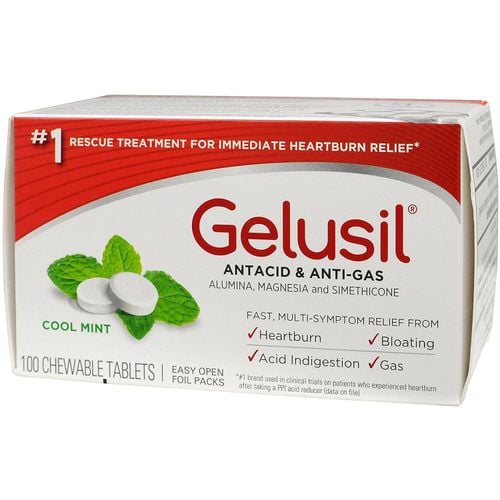Orange juice is rich in essential nutrients, particularly vitamin C. However, consuming it without eating first may negatively affect your stomach. To maximize the health benefits without any adverse effects, it’s better to enjoy orange juice at a different time of the day.
1. How nutritious is orange juice?
Orange juice is considered a rich source of nutrients for the body and helps bring a series of outstanding health benefits. In 240ml of orange juice, there are nutrients such as carbs (26%), protein (2 grams), calories (110 calories), vitamin C (providing 67% of the daily recommended intake), and many micronutrients such as magnesium, potassium and folate.
A study at the University of Otago (New Zealand) showed that the high vitamin C content in orange juice helps the body prevent premature oxidation while helping to heal wounds quickly and effectively support the immune system. In traditional medicine, oranges are cool and sweet, have the effect of quenching thirst, diuretics and promotes the process of eliminating toxins from the body better. Therefore, drinking orange juice regularly can help you improve many aspects of your health and prevent the harmful effects of free radicals on normal cells in the body, thereby significantly reducing diseases such as seasonal flu, colds, etc.
2. Should you drink orange juice before or after meals?
Many people think that orange juice is very good and can be drunk at any time. However, this view is wrong because orange juice contains high levels of vitamin C as well as acidity. If you drink it at the wrong time of day, it can cause a lot of damage to organs in the body.
Specifically, drinking orange juice when hungry has a serious impact on the stomach. The amount of vitamin C in orange juice can interact with the acid in the stomach, easily causing ulcers if consumed in large amounts. On the other hand, drinking orange juice when hungry also makes people with stomach problems more susceptible to increased acid levels, leading to symptoms such as heartburn and making ulcers worse.
On the contrary, if you drink orange juice when you have just eaten, this can overload the stomach because this organ is working at full capacity to help digest the amount of food you have just consumed. When you drink a glass of orange juice after eating, it can increase the pressure on the stomach, leading to symptoms of bloating, abdominal pain, and abdominal discomfort.
3. Note some other times to avoid drinking orange juice
In addition to avoiding drinking orange juice when hungry or after a full meal, you should also note that you absolutely should not enjoy this drink at the following other times:
3.1. Drink orange juice before brushing your teeth
According to experts, you should avoid drinking orange juice right before brushing your teeth. This is because the large amount of acid in orange juice can stick to the enamel. If you brush your teeth right then, it will damage the enamel. Instead, you should use mouthwash after drinking orange juice to remove plaque and protect the enamel from damage.
3.2. Drink orange juice at the same time as antibiotics
In addition to giving up the habit of drinking orange juice when hungry, you should also avoid using this drink with antibiotics. Orange juice contains a lot of acid, which can damage the chemical structure and reduce the healing effect of antibiotics. On the other hand, orange juice also contains a substance similar to narigin, which hinders and makes it difficult for the enzyme to activate the drug transport process. It is best to only drink orange juice after treating the disease with antibiotics to strengthen the immune system and nourish the body to recover quickly.
3.3. Drinking orange juice with seafood
Most seafood contains a significant amount of toxic pentavalent arsenic. Normally, these substances in seafood are not harmful to the body, however, if you consume them with large amounts of foods rich in vitamin C such as orange juice, it can have a negative impact on your health.
When pentavalent arsenic enters the body, it will be converted into arsenic trioxide (arsenic). This substance at high concentrations can cause acute poisoning, even life-threatening if not treated promptly.
3.4. Drinking orange juice before going to bed
In addition to avoiding drinking orange juice when hungry, experts also recommend that people should not consume this drink late at night because it has diuretic properties, which can easily increase the frequency of urination at night and cause insomnia. In addition, orange juice also provides a significant amount of sugar but a relatively limited amount of fiber, so if consumed at night, it can increase blood sugar levels and make you prone to nightmares at night.
3.5. Drink orange juice immediately before/after drinking milk
Another note when drinking orange juice to improve health is to not drink it immediately before or after drinking milk. The amount of protein in milk can react when interacting with the amount of tartaric acid and vitamin C in orange juice, leading to symptoms such as bloating, indigestion, diarrhea, or abdominal pain.
4. Instructions for drinking orange juice properly and healthily
So if you should not drink orange juice when hungry and at the above times, when is the best time to drink this drink? According to leading experts, the most ideal time to drink orange juice is 1-2 hours after breakfast or lunch. You should also drink orange juice immediately after squeezing, because leaving it in the air for a long time will easily lose all nutritional value, especially vitamin C.
In addition, you should only consume about 1 cup of orange juice per day, equivalent to nearly 200ml. According to research results, 200ml of fresh orange juice provides up to 60mg of vitamins, helping to supplement 100% of the necessary vitamins for the adult body in a day. This is also the reason why you should not drink too much orange juice, which can easily lead to excess vitamin C.
In particular, pregnant women need to increase the amount of vitamin C in orange juice to 80 mg/day. However, pregnant women should divide the portion instead of drinking too much at once. For young children, it is best to only give them about 1⁄2 orange/day to provide enough vitamin C.
If you have a fever due to a common cold or flu, supplementing with orange juice is also very necessary, helping to increase resistance and regulate body functions to fight against the agent that triggers the fever. In addition, drinking orange juice when having a fever also helps the body eliminate toxins better, thereby supporting rapid cooling, cutting fever, and replenishing fluids and electrolytes for the body.
5. Who should avoid drinking orange juice?
Although orange juice is very good for many functions and organs in the body, not everyone can use this drink. Below is a list of people who should avoid drinking orange juice regularly, including:
- Patients with stomach ulcers, duodenal ulcers or pancreatitis: Drinking a lot of orange juice can increase the acid concentration in the stomach, triggering heartburn symptoms and making ulcers worse.
- People with kidney disease: Limit drinking orange juice because the amount of vitamin C can increase the amount of oxalic acid metabolized in the body, easily leading to the development and formation of kidney stones or urinary stones.
- People who are taking medication: Avoid drinking orange juice with medication, because the active ingredients in this drink can change the mechanism of action of the drug and reduce the therapeutic effect.
- People who have just undergone surgery: Because orange juice has a fairly high citric acid content, this is not a suitable choice for patients who have just undergone intestinal surgery or have not yet recovered from stomach surgery. Consuming large amounts of citric acid in orange juice can lead to bleeding at the surgical site.
To arrange an appointment, please call HOTLINE or make your reservation directly HERE. You may also download the MyVinmec app to schedule appointments faster and manage your reservations more conveniently.













